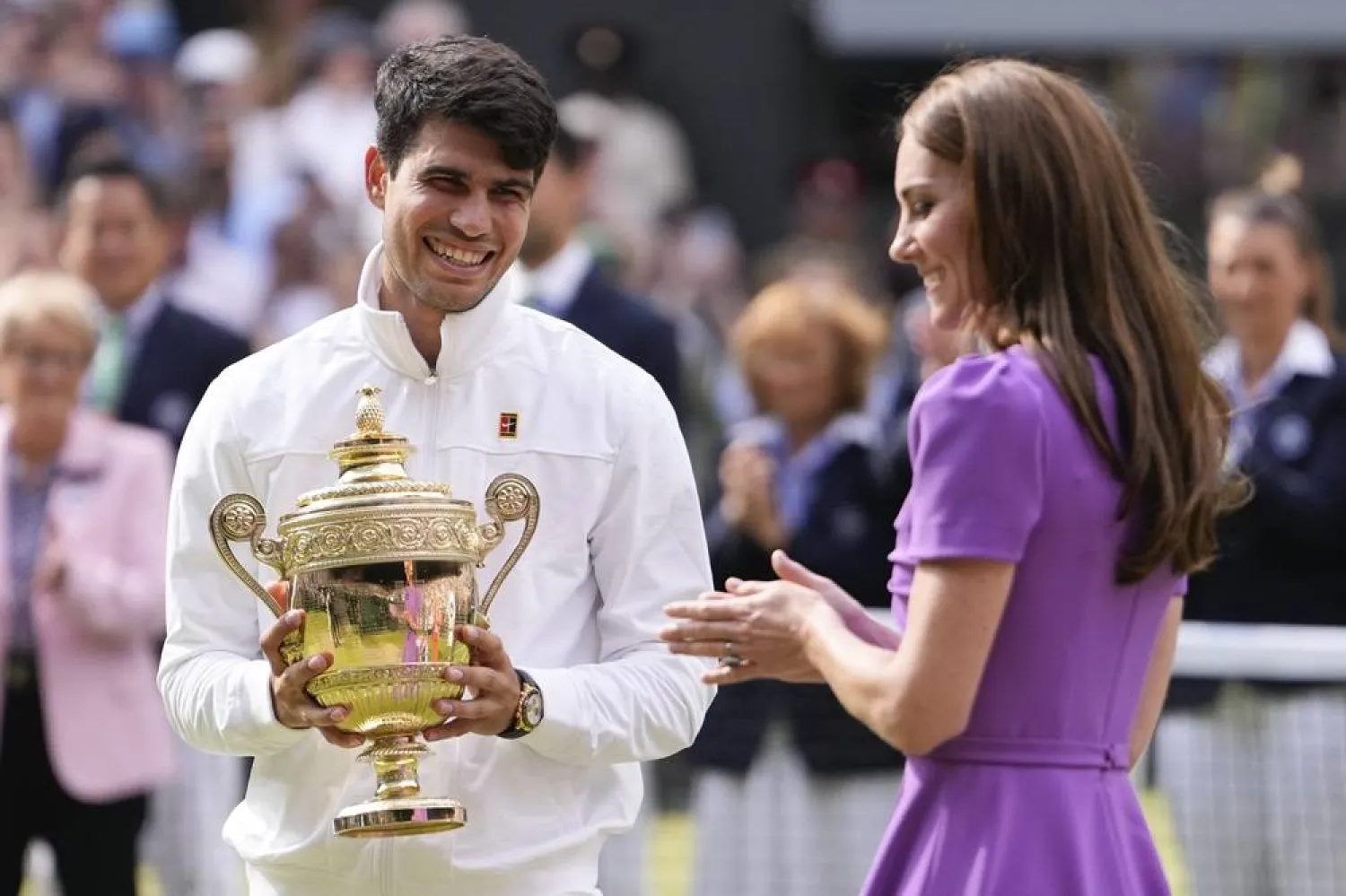Perhaps there should be no surprise that a 37-year-old with a suspect right knee would be trampled into the Wimbledon Centre Court dust by a 21-year-old force of nature.
But the fact that it was 24-time Grand Slam champion Novak Djokovic looking completely powerless as he was pummeled into submission by Spain's Carlos Alcaraz was.
For much of Alcaraz's 6-2 6-2 7-6(4) victory -- a scoreline that flattered Djokovic -- the packed crowd in the old arena were left stunned at what they were witnessing.
Djokovic's record-extending 37th Grand Slam final was his chance to emerge from his leanest season for almost two decades and silence those who say his powers are finally diminishing.
It was also his chance to avenge last year's five-set loss to Alcaraz, become the first player in history to win 25 Grand Slam titles and match Roger Federer's eight Wimbledon crowns.
But after losing a fiercely-contested opening service game spanning 14 compelling minutes, a sequence that hinted at a prolonged battle after featuring seven deuces, the Serb subsided to one of the most chastening defeats of his fabled career.
"It was an annihilation. Alcaraz was phenomenal," opined former British number one and BBC pundit Tim Henman.
It was not that Djokovic, who had knee surgery for a torn meniscus after the French Open, lacked fight, even if the manic intensity he usually brings to court was lacking.
No matter how he tried to repel the Alcaraz onslaught, it was futile as the irrepressible Spaniard joined Bjorn Borg, Boris Becker and Mats Wilander in grabbing four Grand Slam titles aged 21 or under. He also became the sixth male player in the professional era to complete the French Open-Wimbledon double.
"It's a huge honor for me to be a part of those players. I'm really happy to be at the same table as Novak to do it. Huge champions," third seed Alcaraz said. "I don't consider myself a champion yet. Not like them."
Djokovic, bidding to become the oldest man to win Wimbledon, was ran ragged from the baseline when he tried to go toe-to-toe, had his serve picked apart and was left scrambling in desperation to reach Alcaraz's killer drop shots.
Rarely is Djokovic's super-computer tennis brain stumped for solutions, but there was an air of panic in his 10th Wimbledon final as time after time he advanced to the net only for Alcaraz to fizz winners past him with the ease of spitting an olive pip.
"I was inferior on the court," Djokovic told reporters. "That's it. He was a better player. He played every single shot better than I did."
It was the first repeat men's final at Wimbledon since Djokovic's back-to-back victories over Roger Federer in 2014 and 2015. Last year Alcaraz was outclassed in the opening set, losing it 6-1, before coming back to win an epic in five sets and end Djokovic's 34-match Wimbledon winning streak.
But Djokovic never looked like making a similar comeback on Sunday and was fortunate the margin of defeat was not heavier than his 2020 French Open final loss to Rafa Nadal when he managed to win only seven games.
UNEXPECTED LIFELINE
He did get an unexpected lifeline though.
After dropping serve to trail 5-4 in the third set, Djokovic barely paused at the changeover and walked around to the baseline to await his fate with an air of resignation.
Alcaraz duly went ahead 40-0 to earn three championship points but in a rare moment of fragility he double-faulted and somehow allowed Djokovic to claw his way to a service break and into a tiebreak.
Perhaps the Spaniard's mind had already started drifting ahead to where he would watch Spain's soccer team take on England in the Euro 2024 final later on Sunday.
The crowd, many of whom switched from roaring on Alcaraz to trying to revive Djokovic with chants of "Nole Nole", sensed that one of the most unlikely Wimbledon comebacks might still be on. But there was no escape from Alcaraz.
The Spaniard showed great mental fortitude to shrug off that disappointment and showcase his full repertoire in a stunning tiebreak to make it four titles from his first four Grand Slam finals -- a feat last achieved by Federer.









